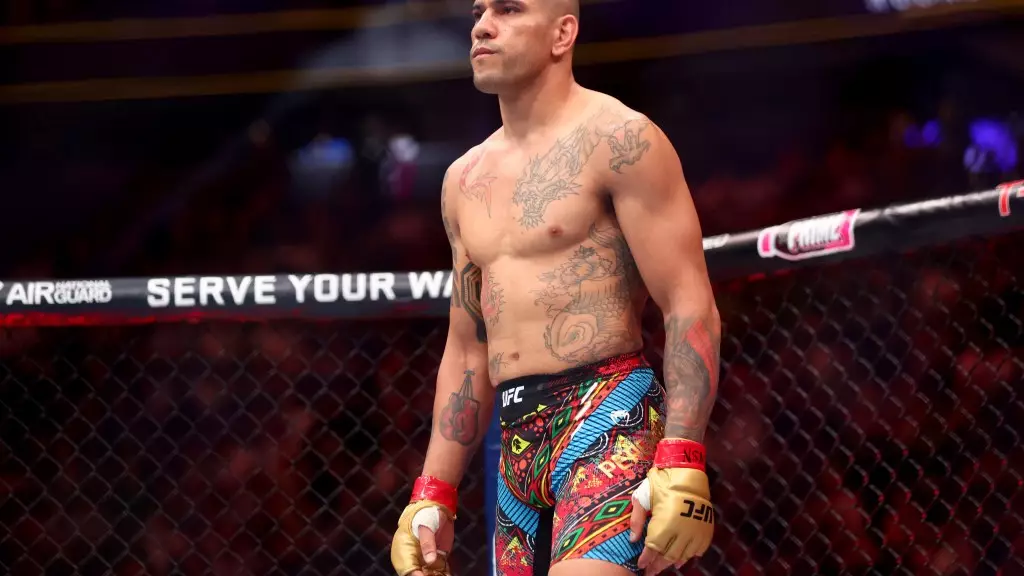Alex Pereira, the reigning UFC light heavyweight champion, finds himself at a fascinating crossroads in his combat sports career. Not long ago, he was carving out his legacy in the middleweight division, a weight class where he faced fierce competition and celebrated victories, including his championship win against the iconic Israel Adesanya. However, now that he reigns supreme in the 205-pound category, his thoughts drift toward the intriguing possibility of becoming a simultaneous two-division champion, a feat that would etch his name into the annals of UFC history.
Pereira’s insights into the weight classes reflect a keen awareness of both his physical capabilities and the competitive landscape he navigates. He acknowledges the challenge of returning to middleweight, primarily stating that the real hurdle lies not in the fight itself but in the arduous task of making the weight cut to 185 pounds. The strain of cutting weight is a common narrative among fighters, one that can significantly alter their performance and well-being before ever stepping into the octagon.
When discussing potential matchups, Pereira does not mince words. He contrasts the prospect of facing Dricus Du Plessis—a formidable contender in the middleweight division—with a potential bout against Jon Jones, who stands as one of the most decorated fighters in MMA history. While Pereira views Du Plessis as the more manageable opponent, he is acutely aware of the skills and legacy that come with facing Jones, who himself has dominated the light heavyweight division. The Brazilian champion’s candid commentary on Du Plessis, calling him a “clown” and insinuating that he lacks the seriousness required to engage in championship bouts, showcases the psychological warfare often at play in the UFC.
Pereira’s confidence in his own abilities underscores a broader theme in combat sports: the interplay between mental fortitude and physical prowess. He portrays Du Plessis as lacking the intensity and focus that he believes a top-tier fighter should possess. This line of thinking reflects a strategy that goes beyond physical training, emphasizing mind games that can influence an opponent’s performance.
As it stands, Pereira’s reign is characterized by activity; he has been one of the more engaged champions in the sport, which is not always the case. Fighters often defend their titles sparingly or after lengthy negotiations. In under a year, Pereira has taken on multiple challengers, solidifying his status at light heavyweight, including his latest win over Jiri Prochazka for the vacant title and his recent title defense against Jamahal Hill. The frequency of his fights speaks to his readiness and conditioning, as well as his willingness to take on risks — traits that any champion in the UFC must possess.
The championship landscape is ever-changing, and Pereira’s mindset shows a blend of strategic prowess and the audacity required to take on multiple opponents across weight classes. His commitment to staying active in the ring, evidenced by an upcoming title fight against Khalil Rountree Jr., reinforces his ambition and desire to define his legacy further.
Looking ahead, the potential for Pereira to make history by simultaneously holding titles in two weight classes raises numerous questions about his long-term strategy. He must consider not only his physical readiness to cut weight but also the implications of juggling fights across divisions. The UFC often has a way of scheduling bouts that can present challenges for athletes seeking to dominate in multiple classes.
As Pereira continues to defend his title while contemplating a return to middleweight, fans and analysts alike will be watching closely. The narrative of his career is one of resilience, ambition, and a willingness to face formidable opponents regardless of the weight class. Whether he decides to pursue a fight with Du Plessis or set his sights on heavyweight aspirations, one thing remains clear: Alex Pereira’s journey in the UFC will be anything but ordinary. The next chapter in his career promises to be exhilarating and filled with strategic developments that could define his legacy in the sport.

